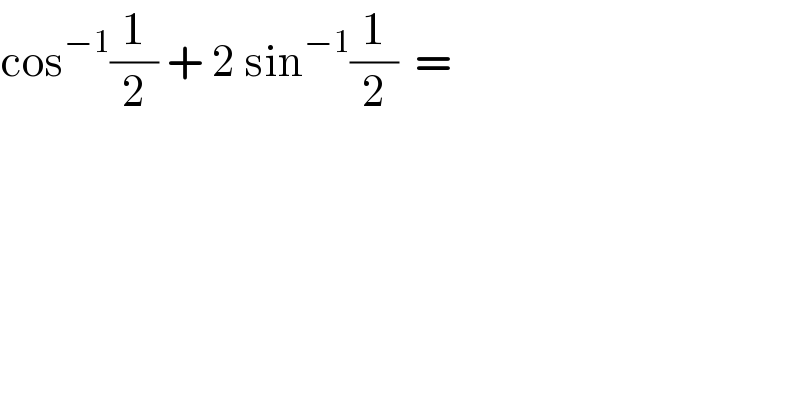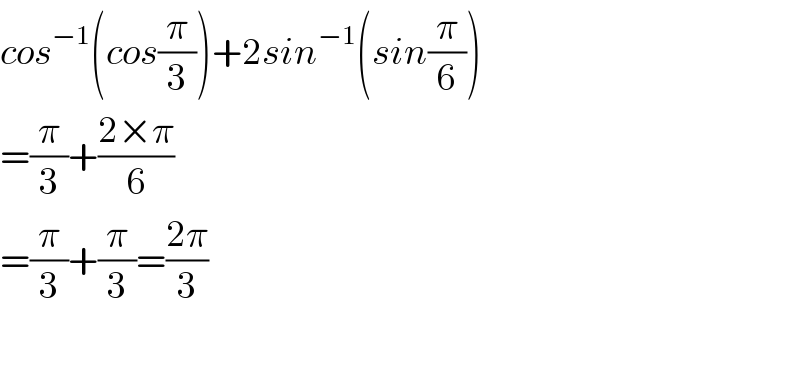Question Number 58177 by mamah Fousséni last updated on 19/Apr/19

$$\mathrm{cos}^{−\mathrm{1}} \frac{\mathrm{1}}{\mathrm{2}}\:+\:\mathrm{2}\:\mathrm{sin}^{−\mathrm{1}} \frac{\mathrm{1}}{\mathrm{2}}\:\:= \\ $$
Answered by math1967 last updated on 19/Apr/19

$$\frac{\pi}{\mathrm{3}}+\mathrm{2}×\frac{\pi}{\mathrm{6}}=\frac{\mathrm{2}\pi}{\mathrm{3}} \\ $$
Answered by tanmay last updated on 19/Apr/19

$${cos}^{−\mathrm{1}} \left({cos}\frac{\pi}{\mathrm{3}}\right)+\mathrm{2}{sin}^{−\mathrm{1}} \left({sin}\frac{\pi}{\mathrm{6}}\right) \\ $$$$=\frac{\pi}{\mathrm{3}}+\frac{\mathrm{2}×\pi}{\mathrm{6}} \\ $$$$=\frac{\pi}{\mathrm{3}}+\frac{\pi}{\mathrm{3}}=\frac{\mathrm{2}\pi}{\mathrm{3}} \\ $$$$ \\ $$
